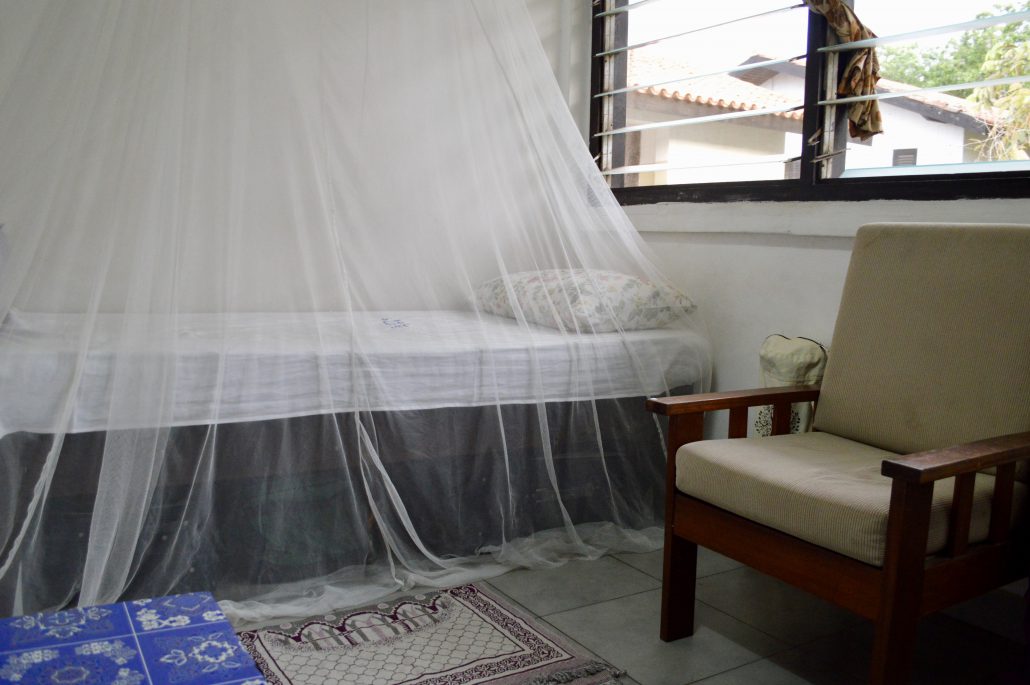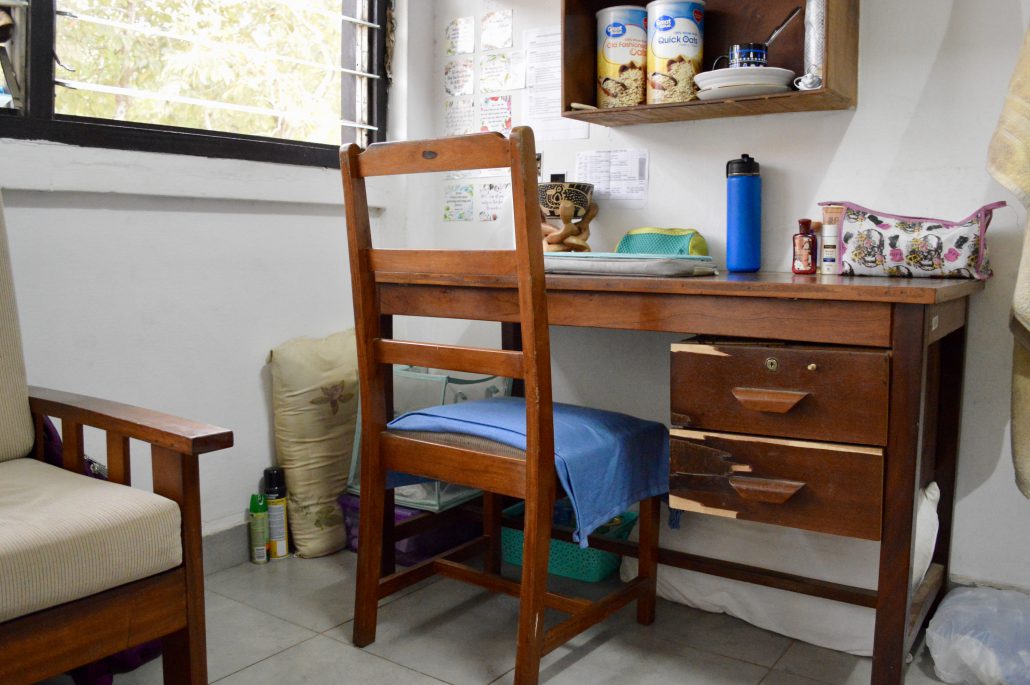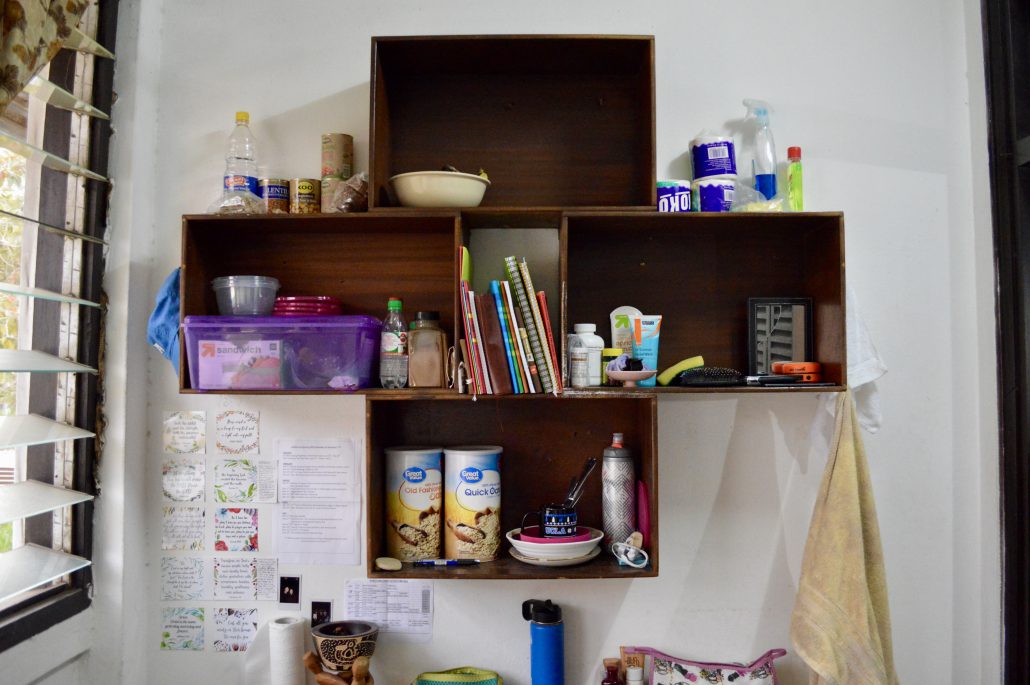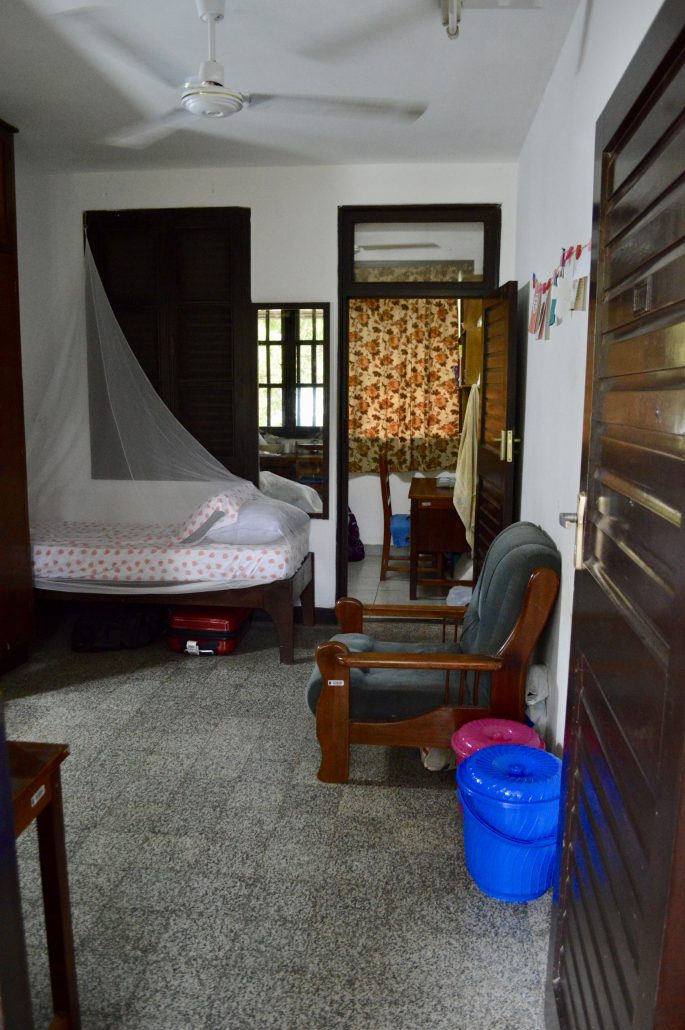BY ASHLEY YOUNG
Living at the University of Ghana is quite an adventure! Every day brings something new and exciting. In this post, I will talk about the different living options available to UCEAP students, and in particular, my experience living at Volta Hall.
When you apply to study abroad in Ghana, you will be able to list your living preferences. Depending on your gender, you will be able to choose from either two or three options. Men can choose either Legon Hall, a co-ed dorm, or the International Students Hostel (ISH), a dorm for (mostly) international students. Women can choose either of these options or they can choose Volta Hall, an all-women’s hall. The most relevant differences between these options are as follows:
- Legon Hall and Volta Hall are right in the center of campus; ISH is on the outskirts of campus;
- Legon Hall and Volta Hall sometimes lose running water, but water retrieved from tanks with buckets (which is the same as the tap water) is always available; ISH rarely ever loses running water.
- There is more opportunity for interaction with Ghanaian students at Volta Hall and Legon Hall; there is more opportunity for interaction with international students at ISH.
All halls have their own small stores, places to eat, laundry services, and seamstresses (I would definitely recommend getting some clothes made; it’s a fun experience!). All halls are also monitored 24/7 by ‘porters,’ who essentially guard the main entrances to the halls, especially during the night hours, and are available to help students and answer their questions. Additional information on housing is available at: http://eap.ucop.edu/guides/ghana.
While one does rank their housing preferences, they may be placed elsewhere. I was placed in my first choice, Volta Hall, but some of my fellow classmates were not. It is also common to be told that you will be staying in one place, but then be moved to another place upon your arrival. Flexibility is very important in Ghana!
My experience at Volta Hall has been a positive one. The hall itself is very nice; when one first walks in they are greeted by a beautiful fountain and well-maintained landscaping – including really cool flowering trees, grass, pot plants, flower beds, and stone walkways. It is like a little oasis – when I walk in after a long class, I can just take a deep breath and relax. The rooms are also very nice. My room is actually comprised of two rooms, an inner room and an outer room. Each has its own bed and desk, and the outer room also has a sink. Outside of the room is a large wrap-around patio that connects all of the rooms – this is especially useful for washing one’s clothes and doing things like yoga.




There is a bathroom with two showers and one toilet on each floor; this is more than enough for everyone to share. While running water can be an issue, bucket showers are actually very refreshing, and not too much of an inconvenience. There is also a kitchen on the ground floor (the building is two-storied) with a fridge and two hot plates for cooking. While my roommate and I use the fridge, we bought our own hotplate and cooking supplies to do most of our cooking in our room. We are a bit of an exception; most students buy ready-made food, but we cook almost all of our meals. I have found this really enjoyable and a good way to stay healthy and use up free time!
Another way to stay busy is to participate in hall activities. Each hall has intermural sports; these include swimming, rugby, basketball, volleyball, cricket, and chess. Swimming is especially popular with international students, and one does not have to have any experience to join! Each hall also has a ‘hall week,’ where they put on events such as concerts and have vendors who sell food, jewelry, clothes, and other goods throughout the week. Many students enjoy visiting each different hall during its week to participate in the activities it offers.
All in all, living at the University of Ghana is a wonderful experience. Some final notes:
- There is a very small gym on campus; it is very close to ISH. Many students also elect to run, swim, or pick up some other physical activity during their time in Ghana.
- Food is available at every hall, as well as Bush Canteen and Night Market, which are two larger locations on campus to get food and groceries. A decently sized Ghanaian meal can be purchased for less than 2 USD. People selling fruit, snacks, and coconuts are also easy to find around.
- Rooms are not air-conditioned but do have fans. They are generally very hot but cooler than being outdoors!
- The WiFi is generally awful; it works best when there are less people on campus (e.g. before school starts) or when most people are asleep (e.g. 3am). Most international students purchase their own portable WiFi devices. Unlimited data costs about 30$/month if the cost is split with a roommate.
I hope this post is helpful! Check out this link for an old but still helpful video of housing at UG!: https://www.youtube.com/watch.
Ashley
Complimentary Twi Lesson!:
Wote hene? (Where do you live?)
Mete Volta. (I live at Volta)
Mepε se mekɔ me fie. (I want to go to my house. Literally, I want that I go to my house.)
Yεn kɔ! (Let’s go!)
Ashley Young studied abroad in Accra, Ghana in 2018: https://uceap.universityofcalifornia.edu/programs/explore-ghana



